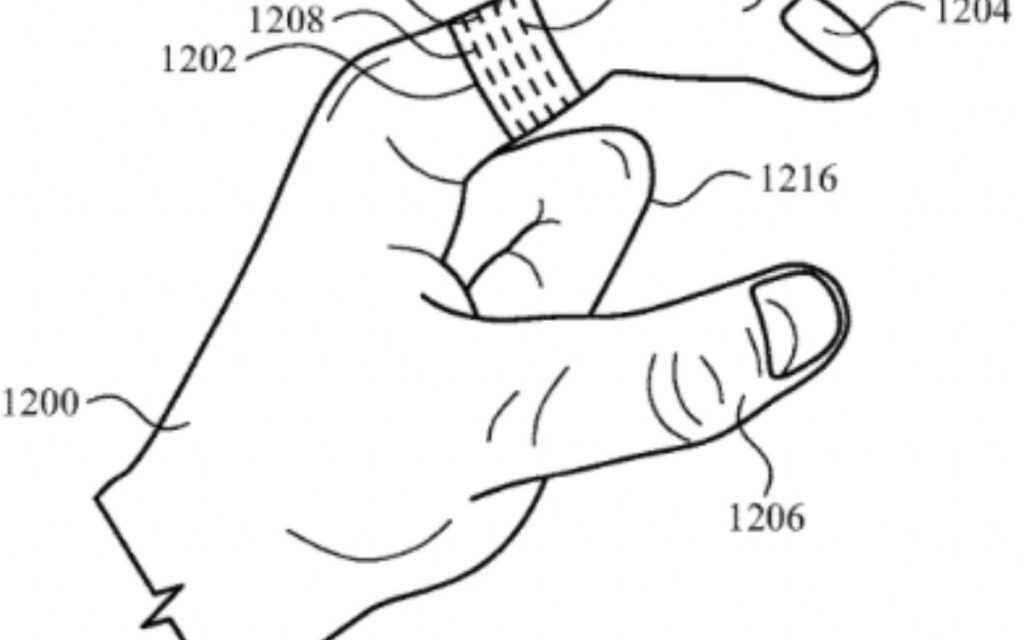Apple has filed for a patent (number US 20230251711 A1) for “skin-to-skin contact detection.” It involves the Apple Watch and a finger-worn device (an “Apple Ring,” perhaps?).
About the patent filing
The patent relates generally to systems and methods of detecting skin-to-skin contact. More specifically, it involves detecting contact between two hands or between two fingers for input in virtual reality or augmented reality environments.
In the patent filing Apple says that many types of input devices are presently available for performing operations in a computing system, such as buttons or keys, mice, trackballs, joysticks, touch sensor panels, touch screens and the like. In some examples, contact between two different parts of a user’s body may be used for input.
For example, cameras in a head-mounted display can be used to track movement of fingers to detect a finger in contact with an opposite hand, or to track movement of a finger along an opposite hand surface. Additionally or alternatively, a radio frequency-based system can be used to detect a finger in contact with an opposite hand, or to track movement of a finger along an opposite hand surface.
However, Apple says that camera-based systems and/or radio frequency-based systems “may have difficulty detecting the difference between a finger touching the opposite hand or proximate to without contacting (hovering above) the opposite hand.” Additionally, camera-based systems require the finger and opposite hand be in the field of view of the cameras for operation.
FIG. 12A shows an “Apple Ring” with skin-to-skin detection features.
Apple wants Apple Watch and Apple Ring users to be able to initiate actions based on “skin-to-skin” contact such as one-handed skin-to-skin input gestures). Sense circuitry in the smartwatch can be configured to sense a signal at a sense electrode (e.g., configured to contact a finger of a hand) in response to a drive signal applied to a drive electrode (e.g., configured to contact a different finger of the hand).
Processing circuitry in the Apple Watch or Apple Ring can be configured to detect a movement gesture (e.g., a slide gesture). When a particular gesture is detected, an operation can be initiated.
Summary of the patent filing
Here’s Apple’s abstract of the patent filing: “Contact or movement gestures between a first body part and a second body part can be detected. Sense circuitry can be configured to sense a signal at the sense electrode (e.g., configured to contact the second body part) in response to a drive signal applied to the drive electrode (e.g., configured to contact the first body part). Processing circuitry can be configured to detect contact in accordance with a determination that one or more criteria are met (e.g., an amplitude criterion and a non-distortion criterion). Additionally or alternatively, processing circuitry can be configured to detect a movement gesture in accordance with a determination that one or more criteria are met (e.g., a contact criterion and a movement criterion).”
If you’d like to help support AWT (and help us reach our goal of eliminating ads), consider becoming a patron. We offer at least three patron-exclusive posts each week. You can start at only $2 per month (though $5/month gets you the exclusives).
Article provided with permission from AppleWorld.Today




